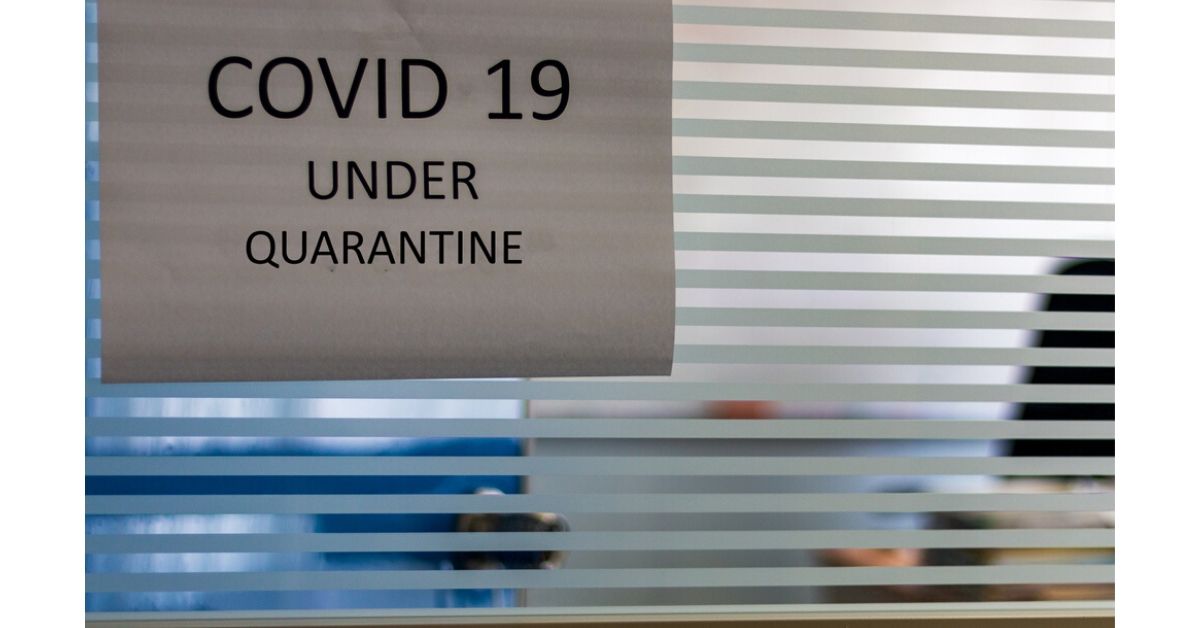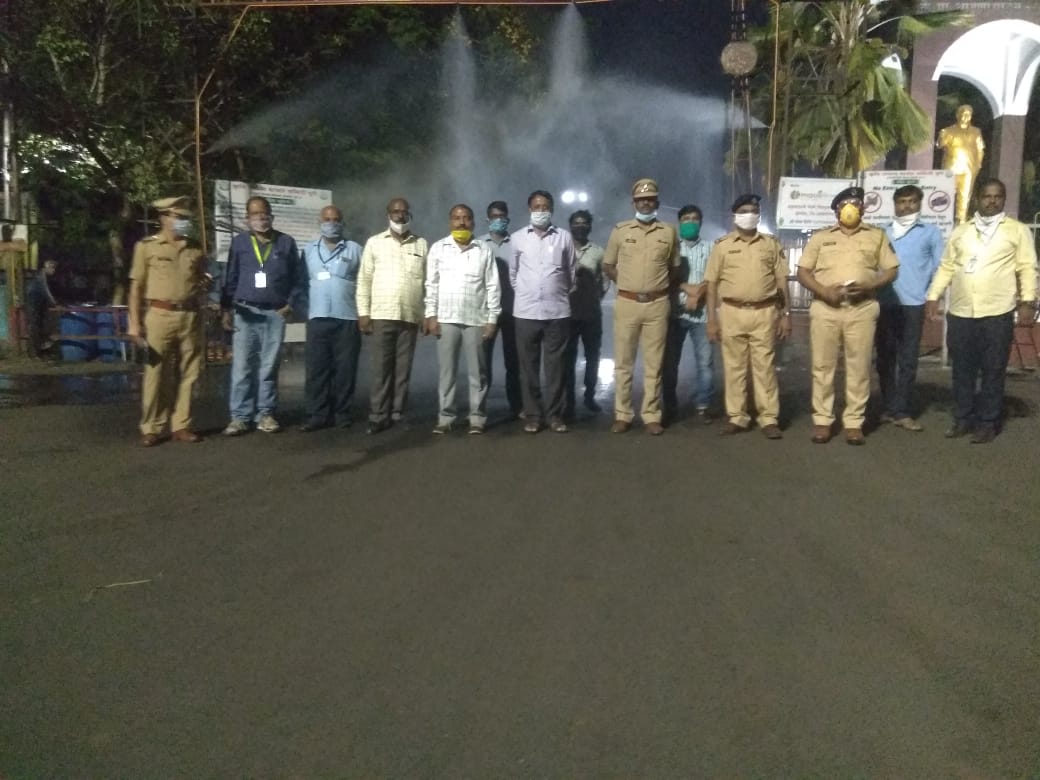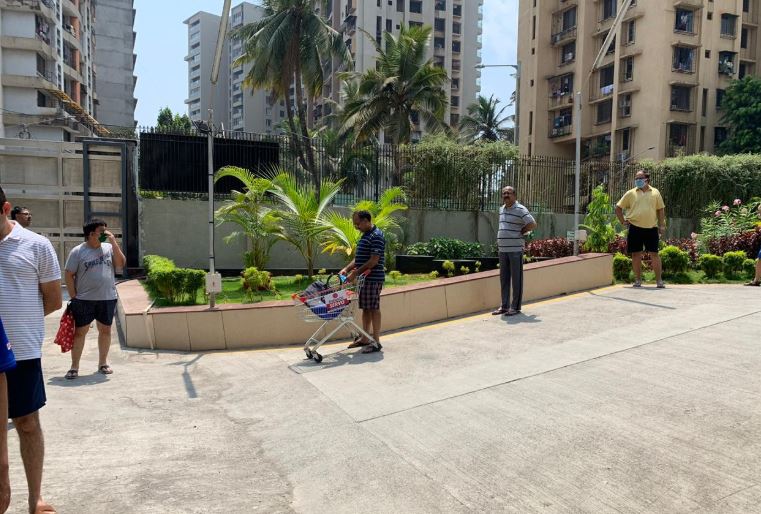COVID-19 Containment Zone: 10 FAQs Answered on What’s Allowed and What’s Not
With states declaring pockets as containment zones, here is all you need to know about what you can and cannot do.

Even though the official lockdown period that India is under will officially end in a few days; with the number of positive COVID-19 cases increasing steadily across the country, state governments are urging the centre to extend it.
In fact, a few states like Odisha and Punjab have already taken the step and informed residents that the lockdown will be effective until 30 April and 1 May, respectively. Meanwhile, other states have declared pockets within their state as ‘containment zones’, and are singling them out for more stringent measures.
In this article, we understand what that means and how it will impact you if you are in one of these areas.
1. What is a Containment Zone?
According to a health ministry document on containment zones, “it is a barrier erected around the focus of infection.”
Under a lockdown, one is allowed to step outside the house to buy groceries, vegetables and for other essential services like visiting an ATM etc. while maintaining adequate social distancing measures.
However, the introduction of containment zones adds more stringent restrictions on movement. Once the area you live in or your apartment falls under the containment zone, you will not be allowed to step out of your house for anything, which includes buying groceries and essentials as well.
In these zones, the police, including special response team of armed commandos, maintain around-the-clock watch, assisted with CCTV cameras and drones.
2. What is a Hotspot?

A hotspot is a potential threat area that has been identified by the authorities after a comparatively higher number of cases emerge from the place.
The people detected positive might not be family members, increasing the possibility of community transmission. To prevent the same, the governments have identified and sealed off such areas to stop people from stepping out at all.
Once an area is declared a coronavirus hotspot, it will be sealed off, and no person will be permitted inside the localities or be allowed to leave them.
3. How long will these restrictions stay in place?
If the place of your residence has been identified as a containment zone, you will be informed by the local authorities about it. There is no time limit specified by the government on when the restrictions will be reversed.
4. What to expect if your residential area has been declared a containment zone?
• Be prepared to stay indoors all the time.
• Multiple screenings for COVID-19 symptoms might take place.
• Be receptive and accommodative of all the sanitising measures the local authorities undertake.
• Do not socialise or leave the house for anything, even your regular walk. This is applicable even if you are living within a gated community or apartment complex with its own inner roads and parks.
5. What are the measures being taken to sanitise these zones?
Any area that is declared to be a containment area will be disinfected thoroughly by the local municipal corporation. The steps that will be taken towards that effect include—massive sanitisation drives, door-to-door screening, spraying disinfectants at regular intervals, cleaning the doors of individual homes, followed by health workers screening all individuals.

6. How do I know if my house falls in a containment zone?
State governments have issued a list of areas that were identified as containment zones. For example, the areas in Mumbai can be seen here, while the places in Andhra Pradesh can be accessed here.
Also, the local administration is informing the residents of these areas using the public address systems and by approaching the RWA’s. In all likelihood, if you see that the entry and exit points to your area are cordoned off and the deployment of police personnel, your house falls in a containment zone.
7. But what about supplies?

In case you are within a declared containment cone, the local administration will ensure that all essential commodities are brought to your doorstep.
To make this a smooth process, the local administration has tied up with Resident Welfare Associations (RWAs) and market associations to provide door-to-door supply of essential items.
8. Will banks and pharmacies in the zone stay open?
No. Shops, banks and pharmacies in these areas will remain shut. Medicines and other such essentials will be home delivered, to ensure that no intermingling takes place.
9. Is there an exemption to this rule?
While in the lockdown phase, there was still some leeway being given to citizens, those areas that fall in the containment zone are following rigorous protocols to ensure that the curve is flattened.
If there is a serious medical case, the same will be exempt, after due verification is carried out. Every authorised person who enters and exits the hotspot area will have to be registered.
Media, which falls under the essential services bracket, will also not be allowed entry into these containment zones.
However, journalists and others involved in essential services like medical professionals or other emergency service staff members staying in these areas will be allowed to go to their workplaces but will have to undergo screening for COVID-19 symptoms each time they enter or exit the area.
10. What happens if one violates the rules?
The consequences of violating the order of staying home might land you in jail for a period of up to two years and/or a fine decided by the enforcing agencies may be levied on you under the Disaster Management Act, 2005, as well as the Epidemic Diseases Act, 1897.
Stay safe, stay indoors!
Also Read: #CoronaLockdown: 6.7 Lakh Needy Fed So Far & You Could Help Feed More
Like this story? Or have something to share?
Write to us: [email protected]
Connect with us on Facebook and Twitter.
If you found our stories insightful, informative, or even just enjoyable, we invite you to consider making a voluntary payment to support the work we do at The Better India. Your contribution helps us continue producing quality content that educates, inspires, and drives positive change.
Choose one of the payment options below for your contribution-
By paying for the stories you value, you directly contribute to sustaining our efforts focused on making a difference in the world. Together, let’s ensure that impactful stories continue to be told and shared, enriching lives and communities alike.
Thank you for your support. Here are some frequently asked questions you might find helpful to know why you are contributing?


This story made me
-
97
-
121
-
89
-
167











